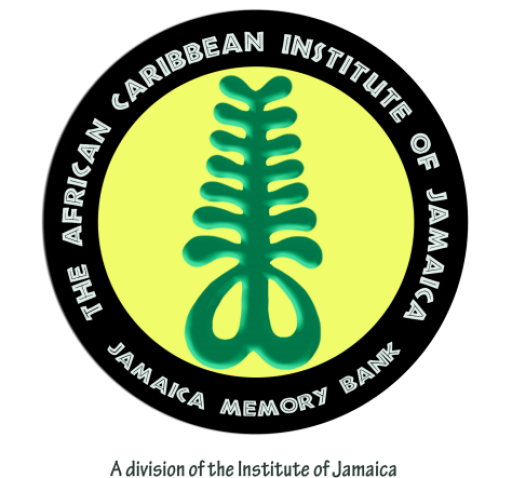By Marsha M. Hall
An esteemed scholar and consummate historian, Professor Trevor Burnard was widely recognized for his exceptional work in early American history, the Atlantic region, and the Caribbean. In his lifetime, Burnard was well respected among his peers and students. Burnard’s ability to navigate the world of academia and public space—his involvement with the then Scott Trust-commissioned report[i] combined with highly profiled academic positions, notably as Director of the Wilberforce Institute for the Study of Slavery and Emancipation[ii], remains an enduring chapter and influence in both institutions. Culturally, Burnard’s ability to immerse himself and traverse diverse cultures took him to Jamaica, where he was a faculty member in the Department of History and Archaeology at the University of the West Indies, Mona.

Trevor Burnard’s comprehensive studies extensively explored the complex interactions of plantation cultures in the Americas and the historical implications of the institution of slavery. Burnard’s numerous works display professional rigor and research while sparking global debates, as with Douglas Hall’s seminal work titled In Miserable Slavery: Thomas Thistlewood in Jamaica, 1750-1786, which has remained invaluable to date. Burnard’s accomplishments, though articulated in a different form in Mastery, Tyranny, and Desire: Thomas Thistlewood and His Slaves in the Anglo-Jamaican World, exhibit significant intellect while displaying his erudite interpretations of a detailed personal diary belonging to Thistlewood. Thistlewood was a brutal slave owner in Jamaica whose tyranny revealed how slavery, particularly in this country, was the most cruel and sadistic throughout the plantation colonies. Burnard’s in-depth empirical research is a reminder of how the internal dynamics of the slave trade, fuelled by capitalist greed, continuously fed this large-scale, horrendous, and exploitative system.
Writing about the brutal history of slavery and the remnants of that institution in the Caribbean is complex. So too is highlighting the visual imageries and representations beyond the myopic interpretations and discourses subjected to one’s imagination. Even more challenging is the approach of reminding the world that slavery, as it unfolded in the British Caribbean, is an ongoing narrative. This was evident in the recent apologies issued by families who are descendants of former slaves and slave plantation owners at the recently concluded Emancipation Jubilee, held from July 31–August 1, 2024, Emancipation Day, at Seville Great House and Heritage Park, one of the better-preserved vestiges of the plantation slave era situated in the parish of St. Ann, Jamaica. Undoubtedly, if Burnard were alive, he would have thoughts to share on this important aspect of history unfolding before our eyes.
As an institution tasked with the documentation and preservation of the history of our people, the African Caribbean Institute of Jamaica/Jamaica Memory Bank pays tribute to and acknowledges the outstanding contributions of Trevor Burnard. His body of research has unequivocally advanced previous studies on plantation slavery in Jamaica and deepened our social and cultural understanding of enslaved Africans in plantation society. To Trevor Burnard, for whom, in his own words, “the subject of History is endlessly fascinating.[iii]”
[i]The Scott Trust owners of the British newspaper, The Guardian, commissioned independent researchers to investigate connections between the newspaper’s founder John Edward Taylor, and the slave trade.
[ii]Wilberforce Institute was named after the abolitionist William Wilberforce, a British politician whose role was instrumental in the campaign against the slave trade.
[iii]“Q&A with Professor Trevor Burnard,” interview by Australian Historical Association Early Career Researchers (February 2018).
Sources:
Australian Historical Association Early Career Researchers. “Q&A with Professor Trevor Burnard.” February 14, 2018. https://ahaecr.wordpress.com/2018/02/14/qa-with-trevor-burnard/.
Burnard, Trevor. Mastery, Tyranny, and Desire: Thomas Thistlewood and His Slaves in the Anglo-Jamaican World. University of North Carolina Press, 2004. http://www.jstor.org/stable/10.5149/9780807898741_burnard
Hall, Douglas, ed. “The Diary of a Westmoreland Planter: Part 1 Thomas Thistlewood in the Vineyard 1750-51.” Jamaica Journal 21, no.3 (1988). 16-29.
Hall Douglas, ed. “Diary of a Westmoreland Planter: Part 2. The Vineyard Slaves.” Jamaica Journal 21, no.4 (1989). 2-16.
Quinn, Ben, “Scott Trust commissions research into Guardian Founder possible links to the slave trade.” The Guardian, July 17, 2020. https://www.theguardian.com/media/2020/jul/17/scott-trust-commissions-research-into-guardian-founders-possible-links-to-slave-trade.
The Guardian. 2023. “The Scott Trust Legacies of Enslavement report.” March 28, 2023. https://www.theguardian.com/the-scott-trust/ng-interactive/2023/mar/28/the-scott-trust-legacies-of-enslavement-report.
